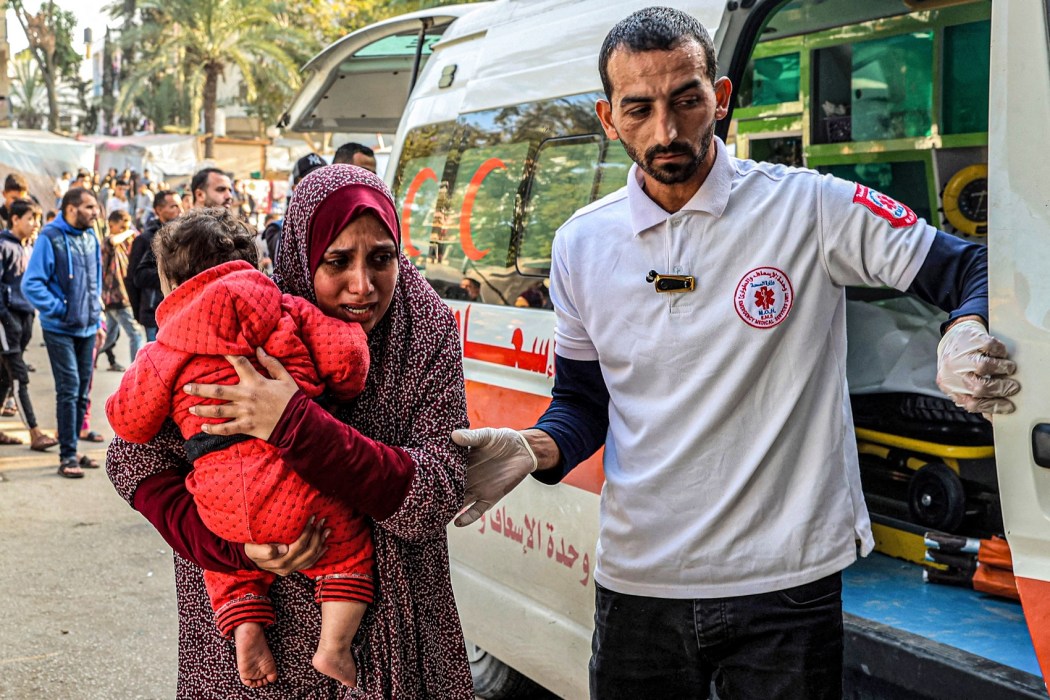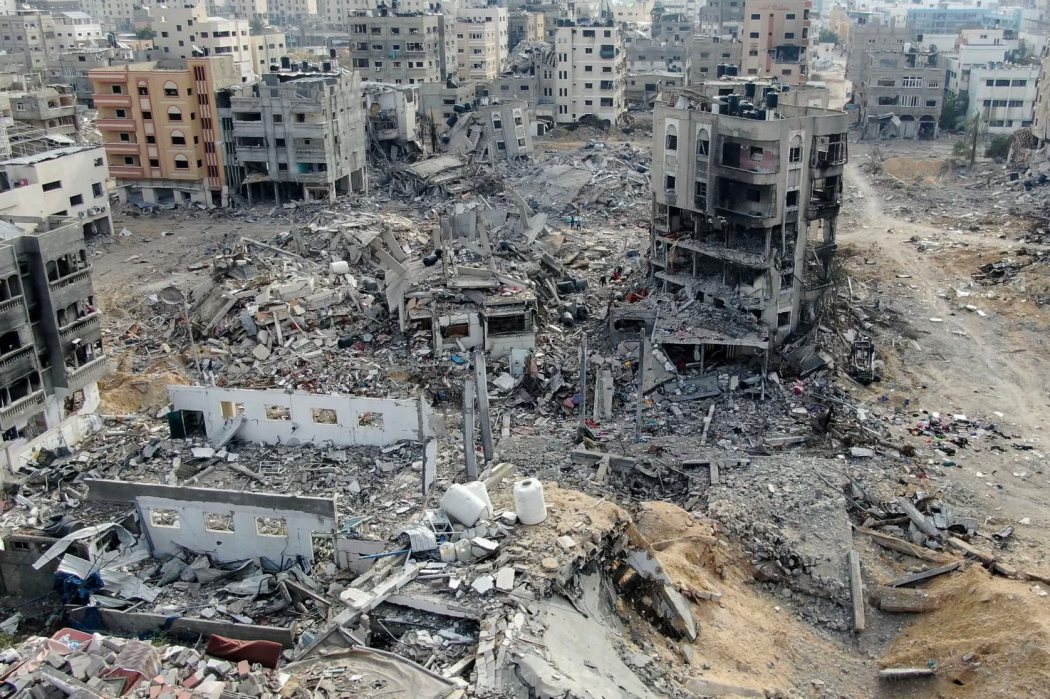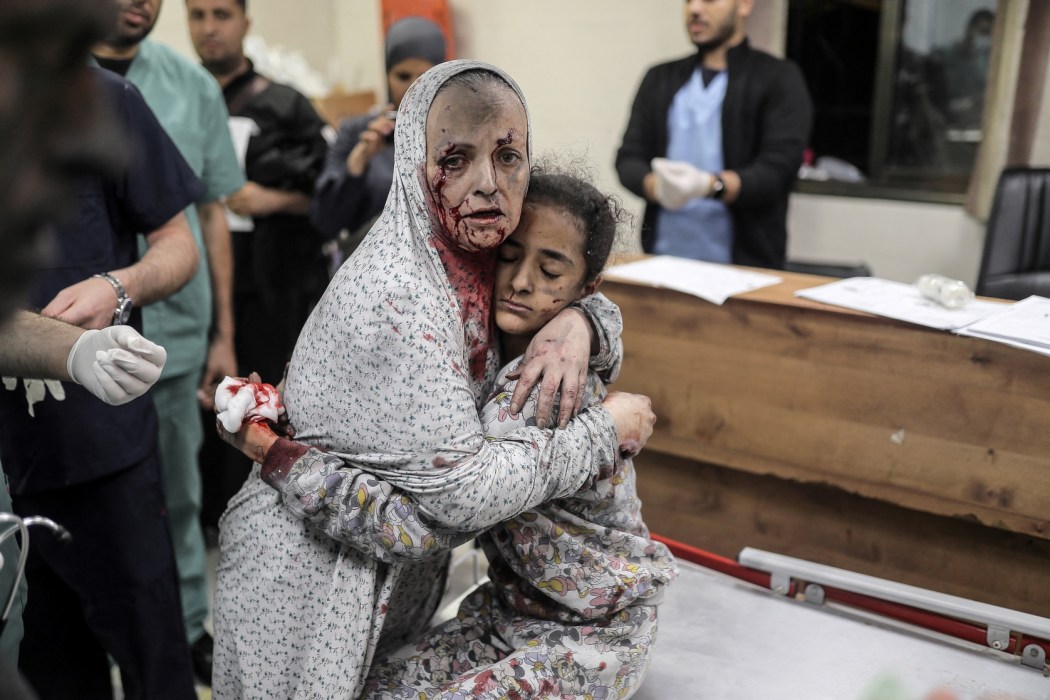Gaza is unlike other war zones across the world and the wounded from the ongoing Israel-Hamas war – now approaching its fifth month – are mostly civilian women and children, a Hong Kong doctor who just returned from a humanitarian mission in the region has said.

Over a million Palestinians are now concentrated around the southern city of Rafah which Israel bombed over the weekend after previously declaring it a “safe zone.”
Israel’s military advance has killed at least 27,200 people in Gaza, according to its health ministry, with the International Court of Justice ruling last month that it is “plausible” that Israel is committing genocide. The bombardment began in response to an unprecedented attack by the militant group Hamas last October 7 which killed over 1,200 people, according to Israeli official figures. Since then, schools, hospitals, mosques, universities, and residential areas have been destroyed and most of the population displaced in what Oxfam describes as the deadliest war of the century.

“This was my 25th humanitarian mission overseas, and the eighth mission to a war zone, but this was the one that I felt most deeply about,” Au Yiu-kai, a veteran surgeon and a long-term medical volunteer of the Hong Kong Red Cross, told the press on Monday after he returned from a month-long emergency medical relief effort at the European Gaza Hospital in Rafah.

“The absolute majority of wounded people, from what I saw, were women, children, and elderly people,” Au said in Cantonese. Rafah now hosts over half of Gaza’s population as thousands of Palestinians fled the war-ridden northern region, according to UN figures.
Burns and amputations
Joining the international relief effort organised by the International Committee of the Red Cross (ICRC), Au said he entered Rafah in a team of a dozen medical professionals last December, where he treated wounded Palestinians after they had received emergency care by local doctors.
See also: Hong Kong activists protest Israel’s bombardment of Gaza
The majority of the patients he treated sustained large-area burns due to explosions or had to undergo amputation after being rescued from collapsed buildings.
In one case, a pair of siblings, who lost their parents when their home was bombarded, was sent to Au’s unit. The younger brother, who was five-years-old, had his right leg amputated down from the knee, while his 13-year-old brother suffered a burn that exceeded 30 per cent of his body.

“It was fortunate that the young sibling had their grandmother and an uncle to take care of them,” Au said, adding that social support among the Palestinian people was crucial in helping the wounded to withstand treatments.
In another case, a 68-year-old woman who had over 40 per cent burns, was accompanied by her daughters when she was admitted to the hospital in November. Au said the case was among the few where the patient was able to receive a skin graft when he left Gaza in January.
“When I was in Yemen, I sometimes had to treat [wounded] militants,” Au said, referring to his previous trip in 2022 to the Middle East nation embroiled in a decade-long civil war. “But this time most of the people I saw were women and children, who were the most vulnerable of all.”
Hospitals in crisis
Au was also responsible for maintaining hospital operations during his stay in Gaza – an increasingly difficult task due to the intense fighting and the blockade that Israel has imposed on the territory.

Israel enacted a “total siege” of Gaza since October 9, eventually allowing only very limited quantities of basic human necessities including small amounts of water, food, and medicine into the region amid mounting international pressure. Gaza is now facing famine, with Palestinians eating grass and drinking polluted water, CNN reported last week.
“The information I get is that less than 30 per cent of Gaza’s hospitals are functioning or partially functioning,” he said. “There were only around nine hospitals functioning when I arrived, now there’s probably around seven or eight.”
Only seven out of the 12 hospitals in southern Gaza remained partially functional, according to a statement released on January 24 by the World Health Organisation.

The surgeon said that there was a severe shortage of medical supplies given the blockade and the constant inflow of injured people.
He said that three ICRC trucks carrying bandages and medicine were scheduled to arrive in Rafah from Egypt when he entered in December, but he never saw them until the final day of his deployment.
“The wounded were constantly being transferred into our facilities, but we didn’t know when the supplies would arrive, so we had to use every [medical resources] deliberately,” he said.
Stella Tsang, a senior programme coordinator at the Hong Kong Red Cross, added that the majority of displaced Palestinians were facing a shortage of clean water, food, and fuel since the war broke out.

“The scale and impact of this artillery fire are more severe than previous conflicts,” Au said, drawing a comparison between the current war and the 2014 Gaza war, during which he also served as a medical volunteer.
“In addition to the current suffering, the road to recovery for the injured will be long and challenging. Humanitarian operations and global attention are crucial for the local people,” he added, urging residents to donate to international relief efforts shall they afford it.
In a statement on Monday, the ICRC called on all parties in the Gaza Strip to respect International Humanitarian Law, and protect civilians, humanitarian personnel and medical facilities.

Last week, Israeli protesters blocked aid entering at the Kerem Shalom crossing. Western countries cut funding to the UN’s Palestinian refugee agency in January after Israel accused at least six of its 13,000 employees of links to Hamas. They were fired, though the agency’s Commissioner General Philippe Lazzarini said he has yet to see proof of the claims.
Since June 1967, Israel has forced thousands of Palestinians off their land with illegal occupations and settlements, resulting in systematic human rights violations and over 4.9 million Palestinians facing daily restrictions on their movement, according to Amnesty International. It has been subject to more critical United Nations (UN) General Assembly resolutions than any other country. Last October 27, the UN voted 120 to 17 in favour of a “immediate, durable and sustained humanitarian truce” in Gaza, with 45 abstentions.
Support HKFP | Policies & Ethics | Error/typo? | Contact Us | Newsletter | Transparency & Annual Report | Apps
Help safeguard press freedom & keep HKFP free for all readers by supporting our team

LATEST FROM HKFP
HKFP has an impartial stance, transparent funding, and balanced coverage guided by an Ethics Code and Corrections Policy.
Support press freedom & help us surpass 1,000 monthly Patrons: 100% independent, governed by an ethics code & not-for-profit.










